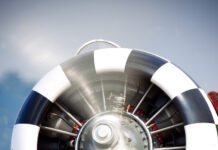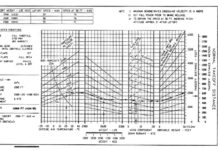As the Midwest and vast expanses of the nation continue to experience record high temperatures and record low precipitation, it is a good time to take a collective step back and examine how the air show industry should respond to these very serious atmospheric conditions. Such record-setting extremes can cause significant issues for both performers and event organizers alike, so as we plunge deeper into the summer season, there are few people that would not receive benefit from refreshing their knowledge. Because the heat and the drought are not necessarily directly related, we will discuss their effects separately at first.
The negative aspects of heat have been considered multiple times in many Ops Bulletins, but given the potentially dramatic impacts of heat, they are worth repeating. Please consider the following issues:
- Heat causes the body to burn more energy which in turn causes fatigue. This compounds the difficulty of already complex activities such as aerobatics. Eating a granola bar or a piece of fruit can help overcome these symptoms.
- Heat causes the body to sweat in order to maintain a lower temperature. The fluid that is sweated out of your body must be replaced so that the body can still function at its peak performance levels. Decision making, G tolerance and even spectator health are directly impacted. Performers: drink more water. Event organizers: have more water available for performers and spectators.
The complete absence or dramatic reduction in rainfall across the country could have a colossal impact on an air show. Consider the difference in flammability between a piece of loose-leaf paper and a green leaf. The presence of water in any substance slows the process of catching fire by keeping the total temperature of an object lower for longer. In regions that have not had significant rainfall, this effect could drastically impact many aspects of an air show.
Pyro acts will need to coordinate with organizers to facilitate a pre-burn of the pyro area. Fire departments will need to be prepared to handle the hazard posed by parking thousands of cars on dried, and possibly freshly cut grass. (For those new to the business, this is not a hypothetical problem. In two separate cases during the last 12 years, grass fires in parking areas at air shows resulted in immense fires causing millions of dollars in damage to the cars parked there. You’ll hear these incidents referred to as “Car-B-Ques.”) Essentially, any grass should be considered as flammable and event organizers should coordinate early with the fire department to arrive at solutions. And, importantly, it’s not enough to simply cut the grass. The clippings must then be removed, as well.








